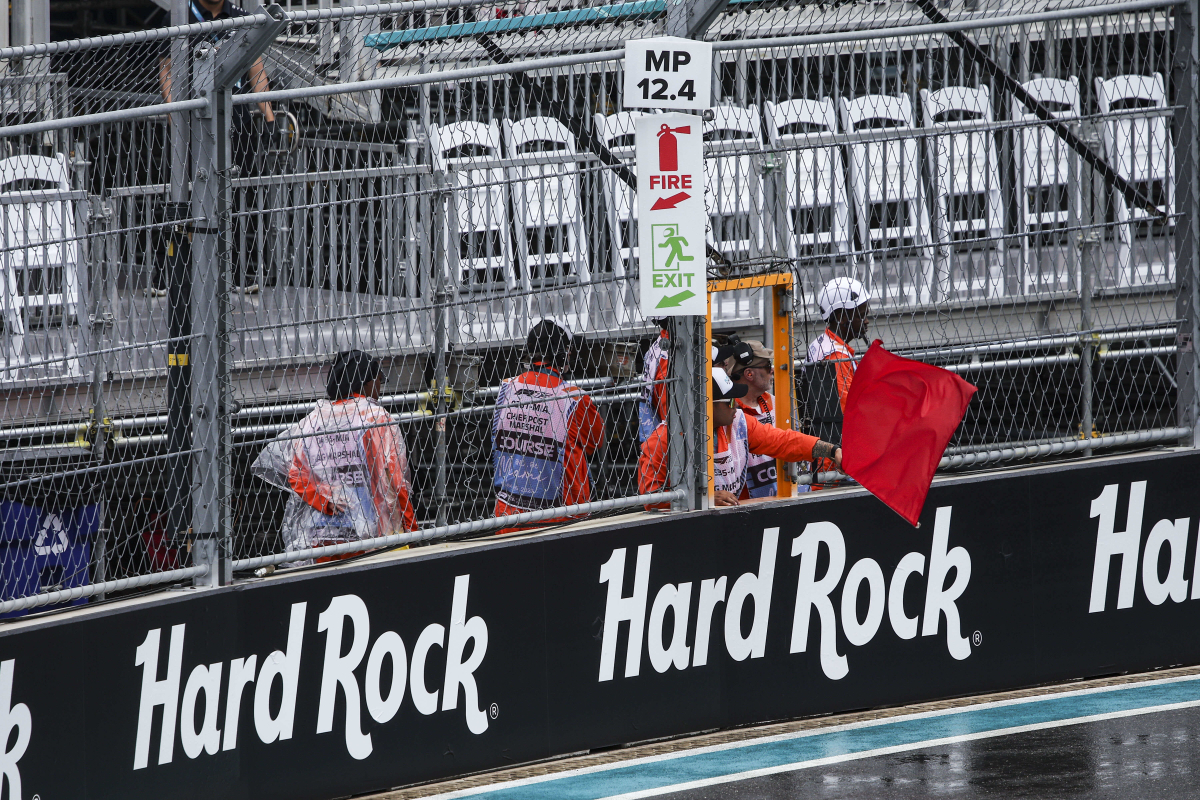F1 Academy Race Cancelled at Miami Grand Prix Due to Extreme W… read more
The second F1 Academy race scheduled for the Miami Grand Prix weekend has been officially cancelled after torrential rain hit the Miami International Autodrome. This decision came after all 18 drivers managed only a few formation laps before the worsening weather conditions forced a delay, and ultimately, a full cancellation of the race. The downpour, accompanied by severe thunderstorms, created unsafe conditions at the temporary street circuit, prompting race officials to act in the interest of safety.
Initially, the drivers took to the track in hopes of completing the second race of the weekend. However, the intense rainfall reduced visibility and increased the risk of aquaplaning, leading to a decision to delay the start by seven minutes. Race control monitored the situation closely, but as the rain showed no signs of easing, the organizers made the difficult decision to call off the event entirely. The announcement was met with understanding from teams and fans alike, recognizing that the priority had to be the safety of the drivers and staff.
This cancellation marks the second time in two years that an F1 Academy race has been called off due to weather. The last incident occurred at the 2024 Qatar Grand Prix, where the second race was eventually rescheduled and held during the following race weekend in Abu Dhabi. Given this precedent, it is likely that the cancelled Miami race will be made up at a future round—most probably at the upcoming Montreal event. Sources close to the series suggest that an additional race will be added to the Canadian round to maintain the integrity of the championship calendar.
The F1 Academy, an all-female feeder series launched to support and promote young women in motorsport, has seen increasing attention from fans and stakeholders alike. Its inclusion on the F1 weekend schedule is a testament to the growing importance of gender diversity and development in racing. As such, the cancellation was a disappointing but necessary decision in a season where every race counts.
Meanwhile, attention has turned to the main event: Formula 1’s Miami Grand Prix, scheduled to start at 4:00 PM local time. The weather remains a major talking point, with forecasts predicting a high likelihood of rain during the race. While the torrential conditions that plagued the F1 Academy race had started to subside by early afternoon, meteorological reports indicated a 37 percent chance of rain at the start of the Grand Prix, increasing to a 78 percent likelihood within the first hour of racing.
This raises the potential for a dramatic and unpredictable F1 race. Rain-affected races often lead to mixed strategies, surprise results, and heightened on-track tension. Already, the sprint race earlier in the weekend was affected by wet conditions, producing several incidents and showcasing the importance of tire management and driver adaptability in the rain.
Compounding concerns were severe weather alerts issued by the National Weather Service, including a Special Marine Warning for the Central and Northern Biscayne Bay areas until 2:15 PM (EDT). The warning was prompted by strong thunderstorms located along a weather front stretching from Miami Beach to areas southwest of Coral Gables. Although the Miami International Autodrome itself was not within the designated impact area—being located slightly further inland—these warnings underscored the volatility of weather in the region over the weekend.
F1’s street circuit in Miami, which debuted in 2022, presents its own set of challenges even in dry conditions. The layout features several tight corners, high-speed straights, and limited run-off areas, meaning that wet conditions dramatically raise the stakes for both drivers and teams. Any rainfall during the race would likely see an increased reliance on full wet or intermediate tires, greater risk of safety car deployments, and possibly even red flag interruptions if conditions deteriorate further.
For fans, while the weather disruption has added an element of uncertainty, it also opens the door for unexpected results and thrilling racing. Wet races have historically produced memorable moments in F1 history—from Jenson Button’s 2011 Canadian Grand Prix victory to Max Verstappen’s charge at the 2016 Brazilian Grand Prix. Teams will need to be ready for rapidly changing conditions, and drivers will have to maintain focus and adaptability from lights out to the chequered flag.
As for the F1 Academy drivers, the cancellation will be a setback, especially for those who had strong qualifying results or were looking to make up for lost points from Race 1. For emerging talents like Abbi Pulling, Maya Weug, and Hamda Al Qubaisi, each race is a critical step in their development and championship aspirations. Missing an opportunity to compete under the F1 spotlight is not just a loss in points, but also in valuable track time and experience.
Despite the setback, organizers remain optimistic that the series will maintain its momentum and find a way to incorporate the missed race later in the season. With growing fan interest, increased investment, and alignment with the Formula 1 calendar, the F1 Academy continues to gain prominence as a key development platform for female drivers aiming for the highest levels of motorsport.
The Miami Grand Prix weekend has now become a weather-affected spectacle, with fans, drivers, and teams all keeping a close eye on the skies. As the clock ticks toward the Formula 1 race start, the atmosphere is filled with anticipation—not just for who will win, but for how the weather will shape the story of the race.




